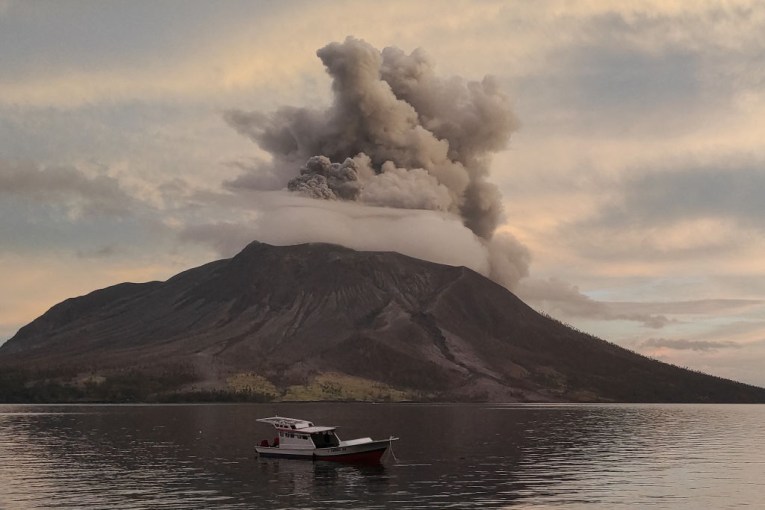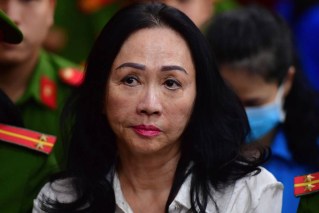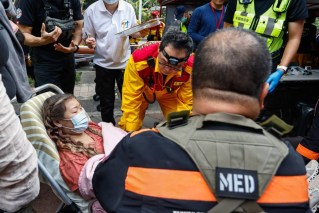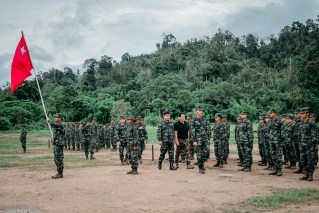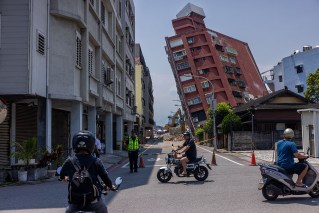UPDATED
One of the most consequential elections in modern Turkey’s 100-year history appears nail-bitingly close, with the potential for it to lead to a May 28 run-off.
Sunday’s vote will decide not only who leads Turkey, a NATO-member country of 85 million, but also how it is governed, where its economy is headed amid a deep cost of living crisis, and the shape of its foreign policy, which has taken unpredictable turns.
The parties of Tayyip Erdogan, who has held power for 20 years, and opposition rival Kemal Kilicdaroglu, were both smelling victory, but sources in both camps admitted they may not clear the 50 per cent threshold to win outright.
On Monday morning (AEST), Turkey’s state news agency AA said Erdogan’s share of vote had fallen below the threshold needed to win the election in the first round – to 49.86 per cent, with more than 90 per cent of votes counted, BBC reported.
Mr Kilicdaroglu was in second position with 44.38 per cent of votes, according to AA.
If no candidate gets at least 50 per cent of the votes, there will be a second round of voting on May 28.
However, the BBC reported there were still more than 14 million votes to be counted.
Pre-election opinion polls gave Mr Kilicdaroglu – Mr Erdogan’s main challenger, who heads an alliance of six opposition parties – a slight lead.

Opposition challenger Kemal Kilicdaroglu at a campaign event. Photo: AAP
A pivotal election amid major challenges
The election takes place three months after earthquakes in south-east Turkey killed more than 50,000 people.
Many in the affected provinces have expressed anger at the slow initial government response. But there was little evidence that the issue had changed how people would vote.
Voters will also elect a new parliament, likely a tight race between the People’s Alliance comprising Mr Erdogan’s conservative Islamist-rooted AK Party (AKP) and the nationalist MHP and others, and Mr Kilicdaroglu’s Nation Alliance formed of six opposition parties, including his secularist Republican People’s Party (CHP), established by Turkey’s founder Mustafa Kemal Ataturk.
Kurdish voters, who account for 15 to 20 per cent of the electorate, will play a pivotal role, with the Nation Alliance unlikely to attain a parliamentary majority by itself.
The pro-Kurdish Peoples’ Democratic Party (HDP) is not part of the main opposition alliance but fiercely opposes Mr Erdogan after a crackdown on its members in recent years.
The HDP has declared its support for Mr Kilicdaroglu in the presidential race. It is entering the parliamentary elections under the emblem of the small Green Left Party due to a court case filed by a top prosecutor seeking to ban the HDP over links to Kurdish militants, which the party denies.
MR Erdogan, 69, is a powerful orator and master campaigner who has pulled out all the stops on the campaign trail as he battles to survive his toughest political test.

Supporters of Turkish President Recep Tayyip Erdogan gather after early election results were announced in Istanbul. Photo: AAP
He commands fierce loyalty from pious Turks who once felt disenfranchised in secular Turkey and his political career has survived an attempted coup in 2016, and numerous corruption scandals.
However, if Turks do oust him, it will be largely because they saw their prosperity, equality and ability to meet basic needs decline, with inflation that topped 85 per cent in October and a collapse in the lira currency.
Mr Kilicdaroglu, a 74-year-old former civil servant, promised that if he won he would return to orthodox economic policies from Mr Erdogan’s heavy management.
He also said he would seek to return the country to the parliamentary system of governance, from Mr Erdogan’s executive presidential system that was passed in a referendum in 2017.
Mr Kilicdaroglu has also promised to restore the independence of a judiciary that critics say Mr Erdogan has used to crack down on dissent.
In his time in power, Mr Erdogan has taken tight control of most of Turkey’s institutions and sidelined liberals and critics.
Human Rights Watch, in its World Report 2022, said Mr Erdogan’s government had set back Turkey’s human rights record by decades.
If he wins, Mr Kilicdaroglu faces challenges keeping united an opposition alliance that includes nationalists, Islamists, secularists and liberals.
Earlier, Mr Erdogan held his last election rallies in Istanbul, accusing the opposition of working with US President Joe Biden to topple him.
-with AAP

